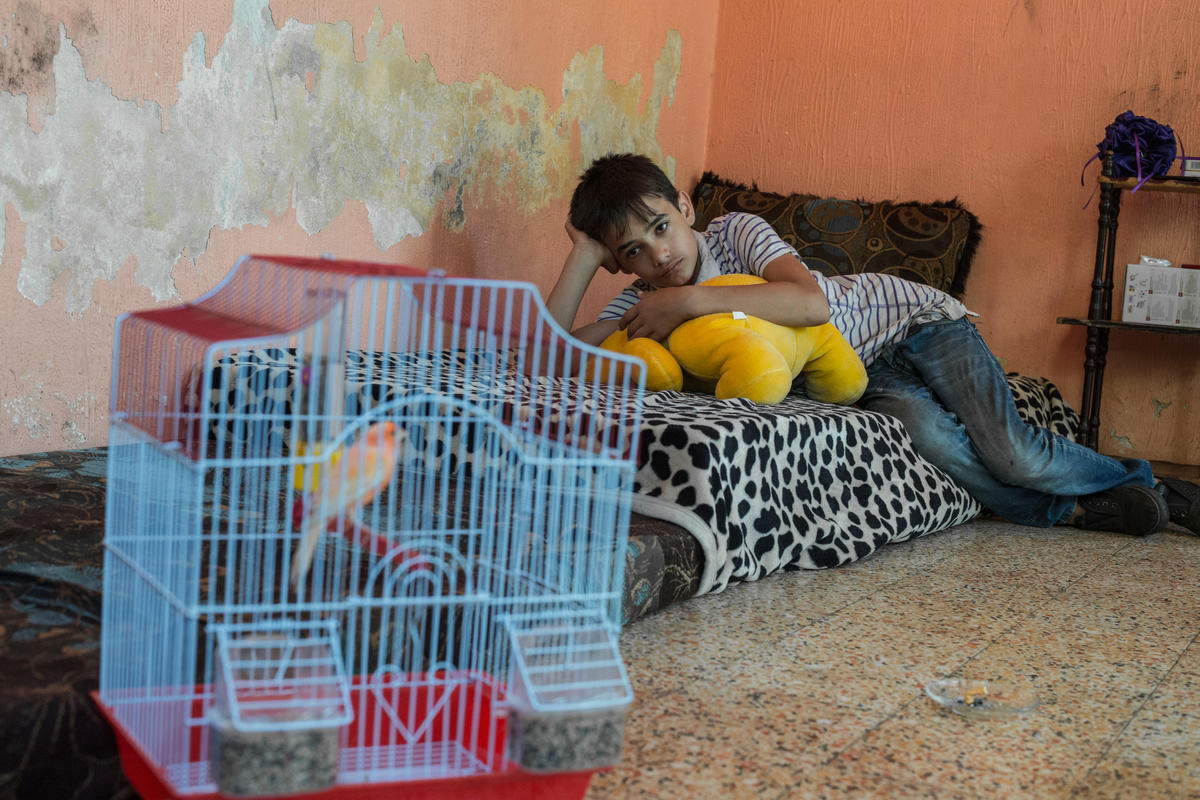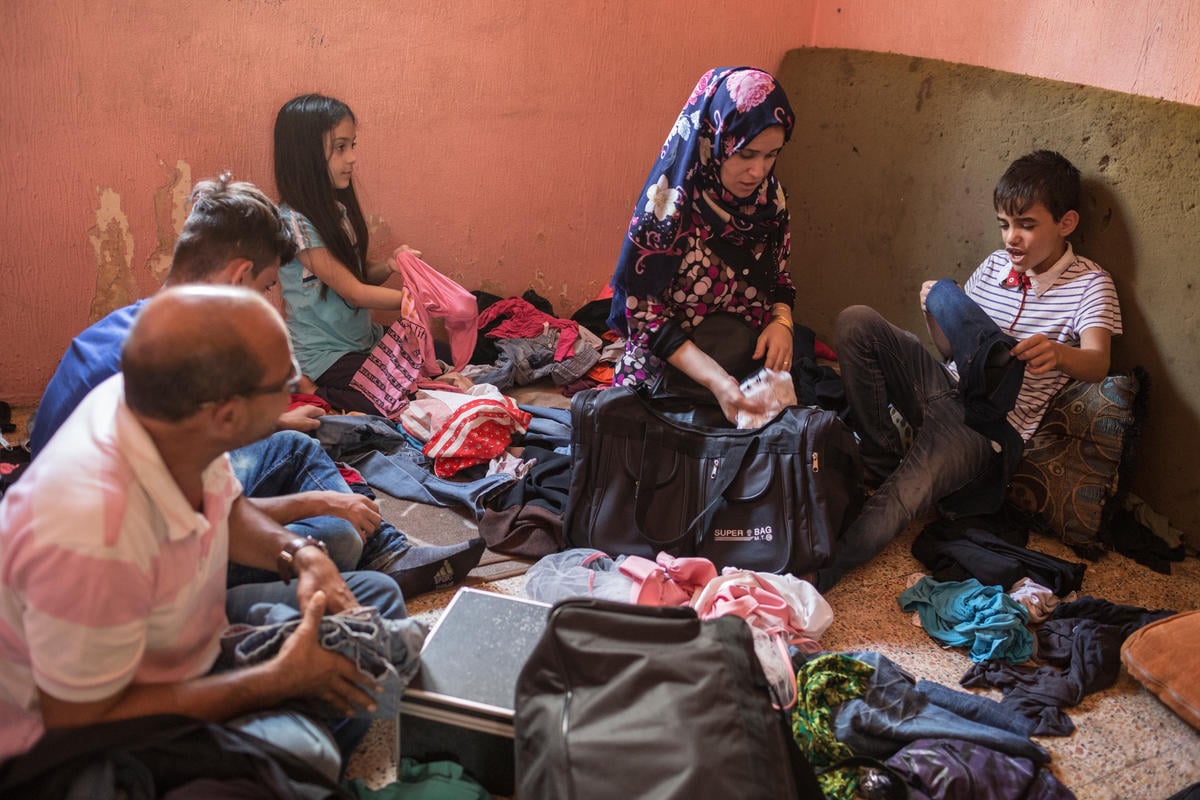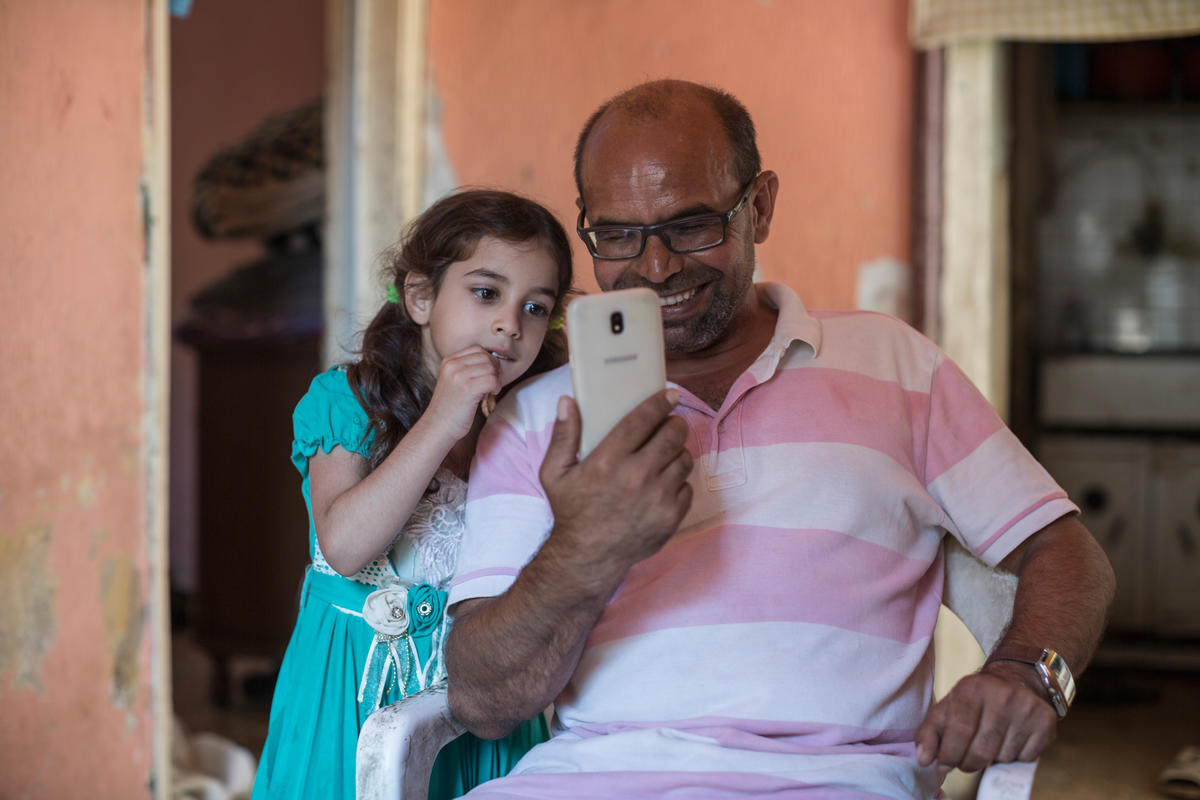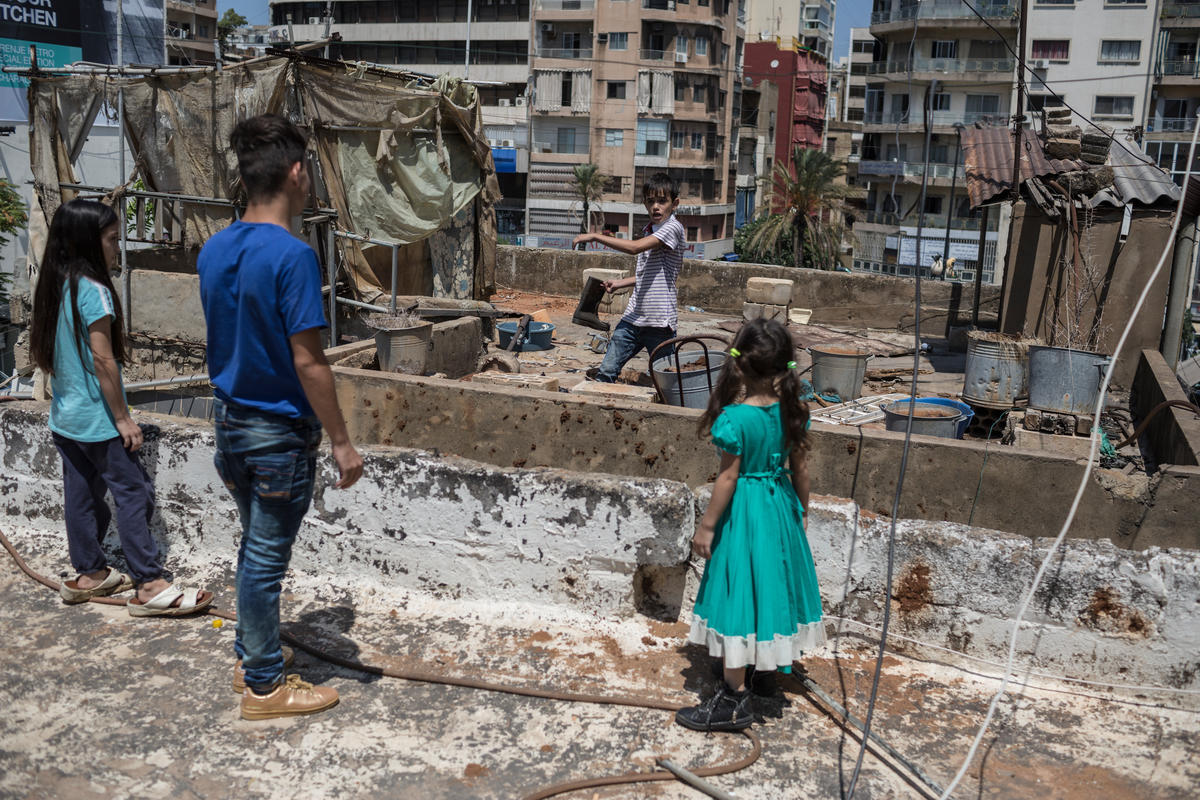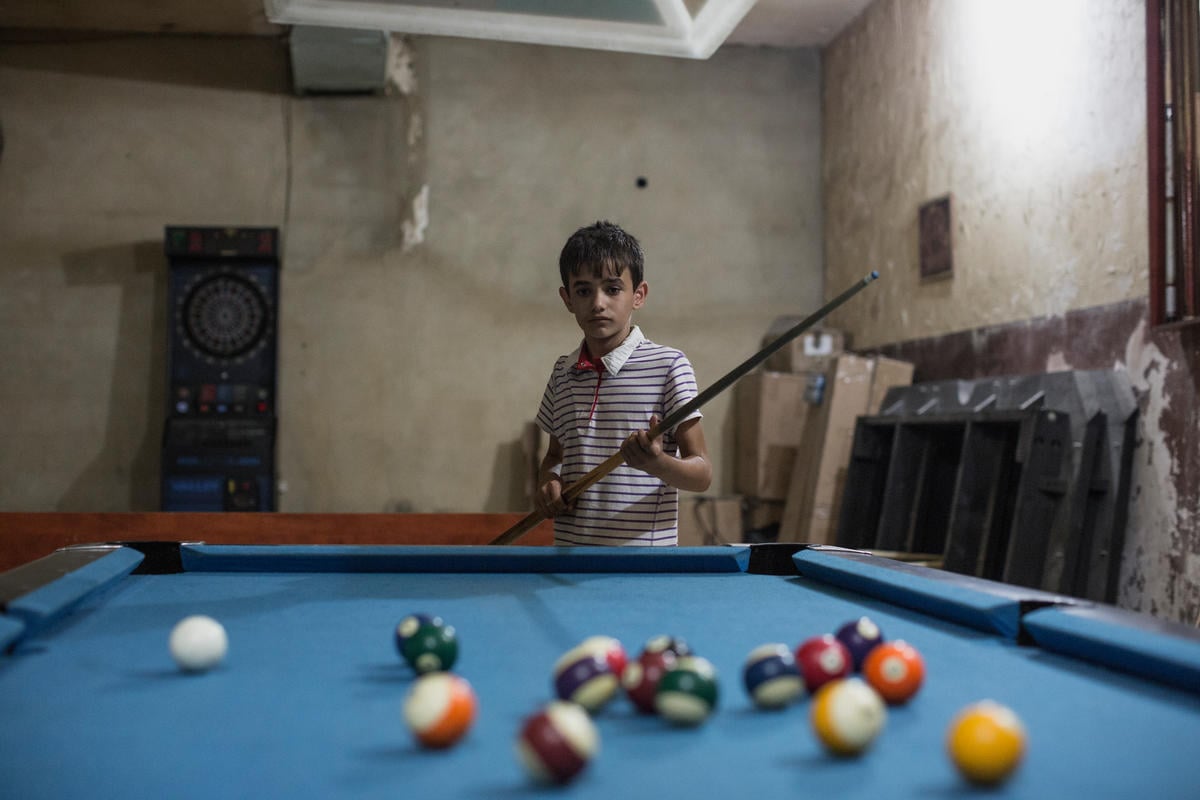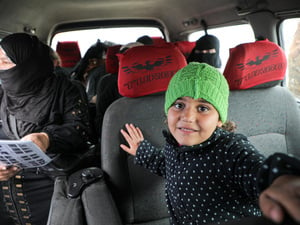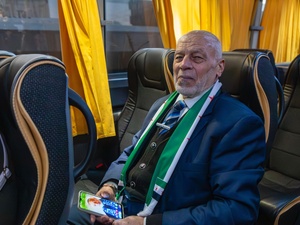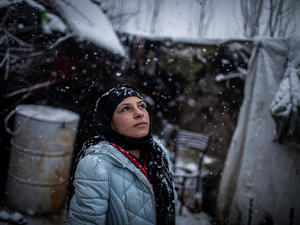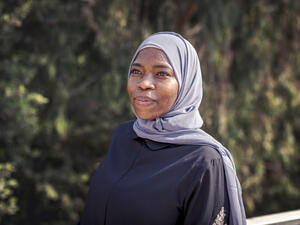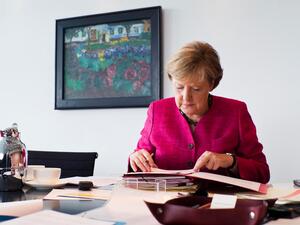Syrian boy takes incredible path from refugee to red carpet
Smiling shyly into a television camera before taking to the stage in front of a packed Cannes Film Festival audience, 13-year-old Syrian refugee Zain Al Rafeaa soaked up the applause of the assembled movie stars, directors and other film industry luminaries.
“I felt paralyzed, totally paralyzed,” Zain said, recalling that surreal night in May when the movie “Capharnaum”, in which he plays the lead role, claimed the prestigious Cannes Jury Prize. “I had never witnessed a standing ovation. That was the best part.”
It was all a far cry from the struggles of his normal life as a Syrian refugee living in the Lebanese capital, Beirut, where the charismatic and witty teenager was spotted in the streets before being cast in the starring role by Lebanese film director Nadine Labaki.
Zain was only seven years old when he fled Daraa in southern Syria with his family in 2012, seeking a safe haven in Lebanon. He had just completed first grade when the security situation worsened in his hometown. “Our lives were in danger. His mother and I had to sacrifice what we thought would only be one year of schooling for the sake of his safety”, said his father, Ali Mohammed Al Rafeaa.
“When I saw Zain, it was very obvious to me that he was going to be our hero.”
The film’s main character, who shares his name, is an undocumented boy living in one of Beirut’s poorest neighbourhoods who has to work to support his family instead of going to school. With no formal training, Zain drew on his own experience as an out-of-school refugee living in tough conditions to play the role.
“It’s been hard,” the youngster said of his childhood in exile, where for the past six years he has slept on threadbare mattresses with his parents and three siblings on the floor of their cramped and draughty apartment. “I would have loved to go to school. I remember the first day we came here, and I went down to play. I got into a fight with a kid.”
“When I saw Zain, it was very obvious to me that he was going to be our hero,” said Labaki. “There is something in his eyes that is very sad. He also knows what we are talking about [in the film], and it shows in his eyes.”
The Lebanese filmmaker knew she was taking a risk by casting only non-actors, but says that was what ultimately gave the movie its power. “There are no actors in my film. All of them are playing their own role, their own lives. They all depict their lives in a way or another, their struggles, their plight”.
According to Labaki, Zain improvised and added his own words to the script on several occasions during filming. “Zain can barely write his own name, yet he was able to carry the heavy burden of a six-month long shoot on his small shoulders. He even added his own expressions, words and acts – all of which came so naturally to him, making the scenes even stronger,” she said.
Capharnaum, which received its public premiere in Beirut on Thursday night, tackles many social issues affecting Lebanese and refugees alike: child labor, early marriage, statelessness and poverty. Lebanon is currently home to around 976,000 registered Syrian refugees – more than half of whom are children – making the country the world’s biggest refugee host by share of population.
"I will miss my cousins here, but there, I will be able to go to school and learn how to read and write.”
For Zain, with Capharnaum having been selected as Lebanon’s entry for Best Foreign Language Film at the 2019 Academy Awards, and the prospect of a world press tour later this year, the impact of his stellar performance is still being felt.
His whole family also received a welcome boost when – with the help of UNHCR, the UN Refugee Agency – they were approved for resettlement to Norway.
Despite the hardship they faced there, leaving Lebanon was not easy. On the eve of their departure on a recent hot summer night in Beirut, the small apartment in a poor neighborhood that the Rafeaas had called home for over six years was crowded with family, friends and neighbors saying their goodbyes.
Zain’s younger sister Iman was reciting some of the Norwegian words she learned at the cultural orientation sessions she attended in Beirut along with her siblings and parents before their departure. But Zain had mixed feelings. “I am both happy and sad. I will miss my cousins here, but there, I will be able to go to school and learn how to read and write.”
Zain and his family are now settling into their new life in Norway. Zain has a bed to sleep on, and he started going to school like other children his age. “We can see the sea from our window. I enjoy sitting by the sea, but I can’t swim in it, the water is freezing!” he said.
They are among the less than one per cent of refugee families worldwide who get the chance to start a new life in a third country. One day, Zain said he may decide to pursue a full-time career in acting. But for now, he is happy just to be finally fulfilling his dream of going to school.


